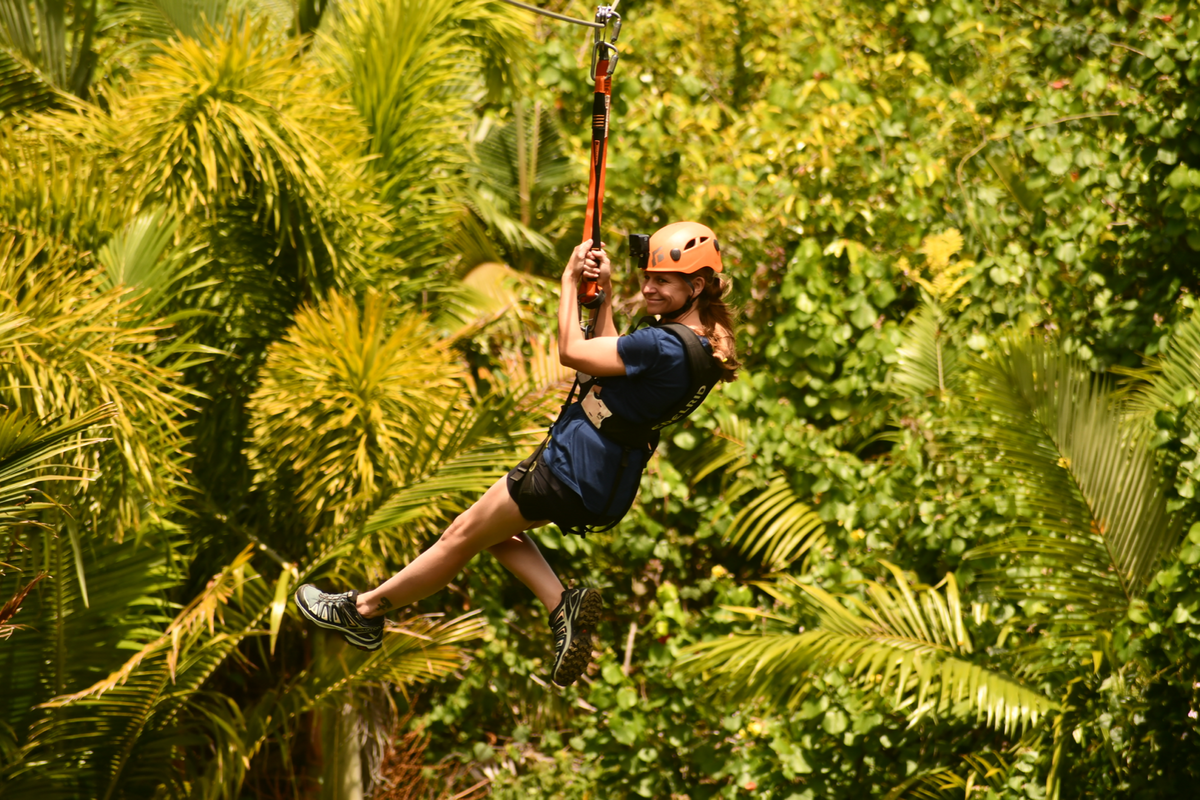More than digging bones: anthropology professor shares her adventures

“I’ve gotten stung by jellyfish a few times,” K.C. Carlson, an Augustana anthropology and archaeology professor said. “It’s not great, but it’s not horrible.”
When Carlson is not teaching anthropology at Augustana or getting stung by jellyfish, she is on another adventure. However, her work seems to travel with her.
“I love to be outside,” Carlson said. “A lot of my leisure time is actually connected to work and has been for a long time.”
This summer Carlson took a vacation to Hawaii that was supposed to be solely a family trip. However, while she was there, she ended up doing cultural archaeological work with a group of Indigenous people.
“When you love what you do, you see it everywhere, so it makes it impossible to get away from work, but that’s okay,” Carlson said. “I get to play in the dirt for a living so that’s not bad.”
Anthropology is the study of people. Carlson has been teaching classes at Augustana for the past six years on the four subdivisions of anthropology: biological, cultural, linguistic and archaeology.
“I love the students, and I love all the questions they ask,” Carlson said. “I love that students are comfortable to push when they don’t understand something. Some folks are kind of nervous about asking questions, but it doesn’t take long to get you guys to know that you are in a safe space and that you should ask.”
Carlson has always known she wanted to teach at the college level. It was just a matter of what she was going to teach. Before she became an “archaeologist by trade,” Carlson lived overseas in Japan, working with military police out on a base and taking [college level] classes.
Her interest piqued in both forensics and psychology when she was working on the base — granted this interest only lasted a few years before it abruptly changed.
“My son was born, and I was looking at my desk, and I had these crime scene photos all over,” Carlson said. “I had a lot of friends and colleagues that were with the FBI, and they were burning out hard on their jobs after five or 10 years. I was like, ‘Woah, do I really want this to be my life?’”
She knew the answer was no and decided to pursue a major in anthropology and focus on archaeology.

She traveled back to Japan for field school later on and helped work on an archaeological dig. Since she lived there for three years, she knew a little Japanese and was able to teach some English during her time there.
“[Being in Japan] was huge from a culture shock perspective,” Carlson said.
Carlson said Japanese culture is beautiful — and so different from American culture. In their everyday lives, they are concerned about their community, but in the United States, we have an individualistic culture.
“They have amazing food, except for breakfast,” Carlson said. “I am not a fan of eating salmon for breakfast.”
Growing up in southern California, it is no surprise that Carlson learns to surf the waves any chance she can.
“I love being in water,” Carlson said. “That’s probably the hardest part of living in South Dakota. I am very, very far away from water.”
Hawaii is her favorite place to surf, but her adventures on the island don’t end there. This summer, Carlson also learned how to fire dance.
“Whenever I travel, I try to talk to local folks, and I try to interact with the local community,” Carlson said.
Amidst her archaeological work, surfing and ziplining in Hawaii, she looked up a Polynesian percussionist who happened to teach fire dancing. Both Carlson and her son enjoyed the lessons and are trying to learn more about how to do it safely at home.
“We haven’t burned down anything yet,” Carlson said. “You’ve got to be willing to try new things.”
When Carlson isn’t teaching courses abroad or traveling in her leisure time, she flips houses.
From the first house she bought, Carlson has never had much money to spend on putting in a down payment for a house. She has always bought property cheap and put in the work.
“Every house I have ever owned has needed a lot of work,” Carlson said.
As COVID hit and two of Carlson’s field schools were canceled, she had to find other work as those trips contributed a lot to her financial income. So, she and her partner bought a condo here.
“On nights and weekends, we flipped [the condo] and sold it this summer,” Carlson said. “That has kind of been a side gig.”
Carlson demos and rebuilds fairly often. Once she is done with a project, she decides if she is going to move in or sell it.
In the next five years, Carlson hopes she will be finished with a book she is writing. She is used to writing from the methodological/archaeological point of view. However, this book focuses more on what it was like to go through grad school as a single mother.
According to junior Tori Brandt, Carlson helps students with anything they need and if she doesn’t have an answer for someone, she will find one.
“She is so real as a person, which is not something you find very often in a professor,” Brandt said. “She lives her life so unapologetically, just as she is, and it’s my favorite thing about her.”



